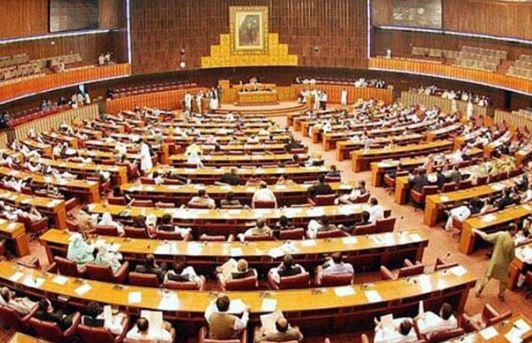ISLAMABAD, Feb 13 (DNA): The swearing-in ceremony for the newly elected members of the National Assembly is expected to take place in the last week of the current month, as the National Assembly’s inaugural session is likely to be convened on Feb 29.
The inaugural session will be presided over by Speaker of the National Assembly, Raja Pervaiz Ashraf, who will also administer the oath to the newly elected MNAs, (Members of National Assembly).
According to regulations, newly elected members must submit details of their election expenditures within ten days of their victory; failure to do so will result in the withholding of their success notification. The success notification will be issued within 14 days of their victory. Following this, the allocation of 60 women and 10 non-Muslim seats will take place.
Following the announcement of the official results, independent MNAs will have a three-day window to join any party in parliament of their choice.
According to Article 21 of the Constitution of the Islamic Republic of Pakistan, the National Assembly session must be called within 21 days of elections, though it can also be summoned earlier.
As per Section 91(2) of the Constitution, the president is required to summon the session of the National Assembly within 21 days following the official announcement of election results or the issuance of its notification.
Following the election of the Speaker and Deputy Speaker, the selection of the new Prime Minister will take place via secret ballot. The newly elected Prime Minister is expected to assume their responsibilities in the first week of March.
To elect the Prime Minister, the assembly will be divided into two sections, with members tallied accordingly based on this division.
According to Section 91(4), the prime minister “shall be elected by the votes of the majority of the total membership of the National Assembly, provided that, if no member secures such a majority in the first poll, a second poll shall be held between the members who secure the two highest numbers of votes in the first poll and the member who secures a majority of votes of the members present and voting shall be declared to have been elected as prime minister, [and] provided further that, if the number of votes secured by two or more members securing the highest number of votes is equal, further poll shall be held between them until one of them secures a majority of votes of the members present and voting.

















